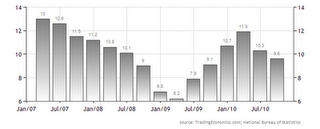Bonds or Fixed income securities are the largest asset class in terms of investment value (if we do not consider real estate). Bonds are an extremely useful financial instrument if one needs to maintain a periodical cash flow or match the liabilities. For example, if we consider you have to meet periodical cash outflows, the same can be managed by creating a portfolio of bonds with coupon payments matching your outflows. Bonds are also a good tool to hedge against inflation. In this regard, two types of bonds are broadly considered: Inflation linked bonds and floating rate bonds. Let us understand the difference using a simple example.

Consider a straight bond with principal amount as 100,000, annual coupon rate of 5% and inflation rate of 3%. In this case, the principle will remain unchanged and there will annual coupon payment of 5000 (5% * 100,000). If we take into account a inflation linked bonds, the principal will change to 103,000 ( 3% inflation rate * 100,000 + 100,000). The coupon payment of 5% is then calculated as 5150 ( 103,000 * 5%). If it is a floating rate bond, the principal will remain unchanged but the coupon rate will change to 8% (5% +3%). The coupon payment will then be calculated as 8000 (8% * 100,000).
| Type of Bond | Redemption value after year 1 | Coupon Rate |
| Straight Bond | 100000 | 5000 |
| Inflation Linked | 103,000 | 5150 |
| Floating rate | 100000 | 8000 |
If we look at the table, it may seem that inflation linked bonds have a clear advantage over the other bonds. However, the same may not hold in all cases. For instance, if the tenure of the bond increases to 5 years, the actual return will depend on the inflation rates and paths taken by the bonds. Assuming that after 4 years, there is a deflation of 4%. In such a scenario, the straight bond will outperform both the inflation linked and floating rate bond.
As an investor, it depends on our own risk appetite and investment plan to choose the desired bond. Our objective in choosing the right instrument for us should depend on our requirement for coupon payments to meet our liabilities. Happy investing !
Tags: bonds inflation personal financeYou might like reading:

“The two months I spent at NetApp were probably the most fulfilling and fun-filled months of my whole life”, says Harshitha Neti from NMIMS, Mumbai
Internship experience at NetApp by Harshitha Neti, Narsee Monjee Institute of Management Studies, Mumbai Summer internship is one of the most hyped and hectic processes in the 2 years of one’s MBA. Right after getting into a bschool, eager first year students flock to seniors to learn tips, tricks and tweaks to crack an internship with the company they […]

GDP vs Inflation
Whenever, one talks about country’s economy, the two parameters GDP and inflation plays important role in determining country’s economy. Before getting into the details, lets look at brief definition of GDP and Inflation. GDP: The gross domestic product (GDP) is the amount of goods and services produced in a year, in a country. It is the market value of all […]






























